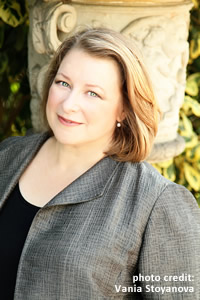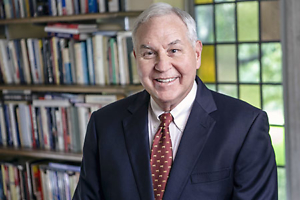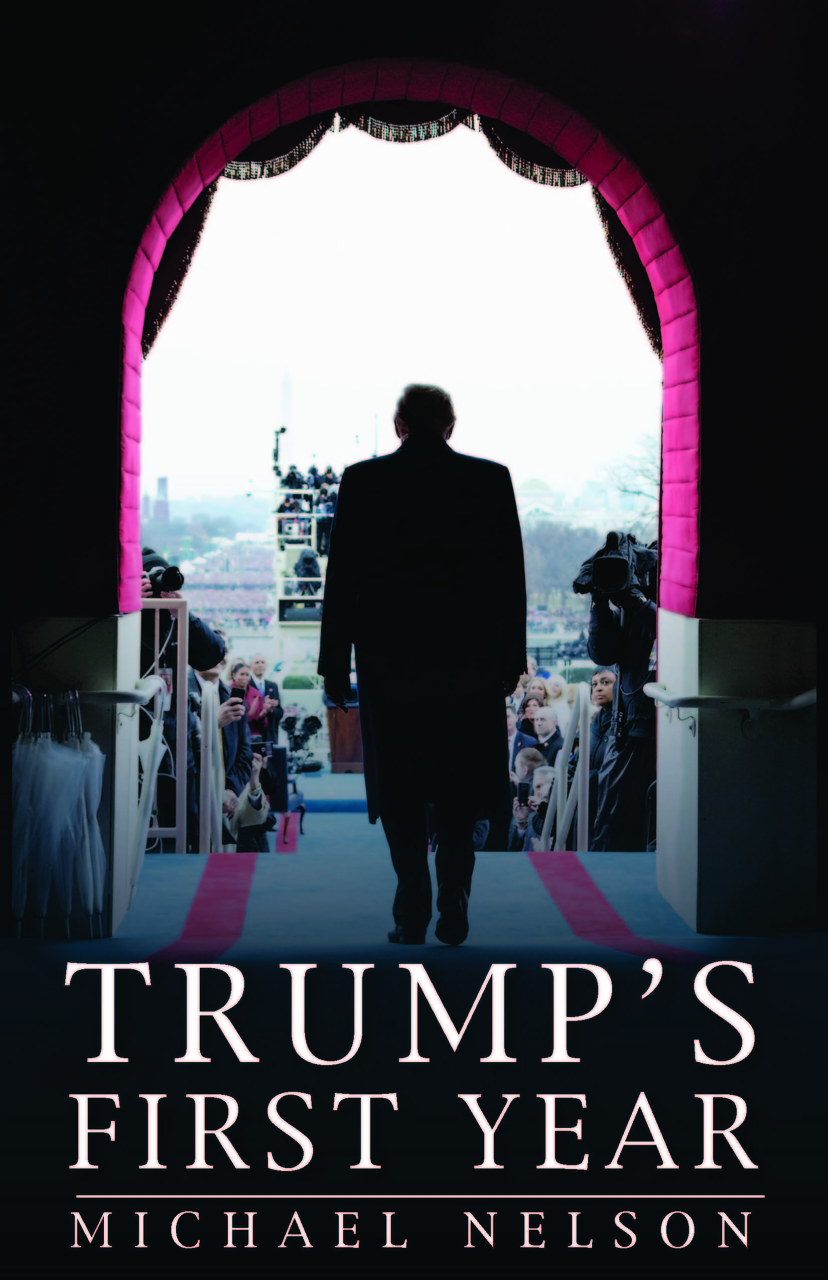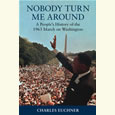Magical Mystery Tour
Chapter 16 talks with Deborah Harkness, who continues the alchemical adventure she began in A Discovery of Witches
In her first novel, The New York Times-bestselling A Discovery of Witches, University of Southern California history professor Deborah Harkness introduced readers to a world in which supernatural creatures—vampires, witches, and “daemons”—co-exist with ordinary humans. For the most part, the four groups maintain an uneasy peace that requires them all to follow certain mutually agreed-upon guidelines, one of which forbids alliances between creatures of different types. Then a long-lost manuscript from the private collection of seventeenth-century alchemist Elias Ashmole turns up unexpectedly at Oxford’s Bodleian Library and promptly disappears again. Diana Bishop, a Yale history professor and descendant of the first witch executed at Salem, joins forces with Matthew Clairmont , a 1,500-year-old vampire and professor of biochemistry, in a dangerous adventure to prevent Ashmole 782 from falling into the hands of those who would use it for evil. Romance quickly ensues, and Matthew and Diana must fight for their future together, a future that may be in jeopardy unless the missing manuscript can explain the origin of magical creatures like themselves and why their numbers seem to be diminishing.
 In Shadow of Night, the latest installment of the story, Matthew and Diana time-travel to the England of Queen Elizabeth I in hopes of finding Ashmole 782 in an earlier, more complete form. They’re also looking for knowledgeable witches who may be able to help Diana access her powers, which were spellbound by her parents for her own protection before their mysterious deaths. Once they arrive, Diana discovers that Matthew is a member of the notorious “School of Night,” a group of free-spirited intellectuals, artists, and political activists that includes Sir Walter Raleigh and playwright Christopher Marlowe. Matthew’s connections bring them closer to the manuscript, but not before sending them to Prague and the court of the unstable Rudolf II, the Holy Roman Emperor and King of Bohemia, on a secret mission for the Queen. Even more dangerous than the monarchs of the time, however, is Matthew’s father, the powerful and treacherous vampire Philippe de Clermont, who summons the couple to France for a tense father-and-son showdown. As the stakes around her rise higher, Diana begins to discover just how powerful her magic really is and struggles to learn to control it in time to protect herself and Matthew from those who would destroy them.
In Shadow of Night, the latest installment of the story, Matthew and Diana time-travel to the England of Queen Elizabeth I in hopes of finding Ashmole 782 in an earlier, more complete form. They’re also looking for knowledgeable witches who may be able to help Diana access her powers, which were spellbound by her parents for her own protection before their mysterious deaths. Once they arrive, Diana discovers that Matthew is a member of the notorious “School of Night,” a group of free-spirited intellectuals, artists, and political activists that includes Sir Walter Raleigh and playwright Christopher Marlowe. Matthew’s connections bring them closer to the manuscript, but not before sending them to Prague and the court of the unstable Rudolf II, the Holy Roman Emperor and King of Bohemia, on a secret mission for the Queen. Even more dangerous than the monarchs of the time, however, is Matthew’s father, the powerful and treacherous vampire Philippe de Clermont, who summons the couple to France for a tense father-and-son showdown. As the stakes around her rise higher, Diana begins to discover just how powerful her magic really is and struggles to learn to control it in time to protect herself and Matthew from those who would destroy them.
Prior to her appearance at Parnassus Books in Nashville, Harkness answered questions from Chapter 16 via email.
Chapter 16: You have called your first novel “a book about books, a love of reading, and what books can do.” What books or authors were your original literary loves?
Deborah Harkness: I read anything I could get my hands on as a child. I was particularly fond of The Witch of Blackbird Pond, the Half Magic series by Edward Eager, and of course, Nancy Drew.
Chapter 16: How did you become interested in alchemy, and what impressions of this fairly esoteric subject do you hope readers will take away from your novels?
Harkness: I took one course on the subject when I was an undergraduate at Mt. Holyoke College and I was hooked! Hopefully, my readers will come away from the books knowing alchemy was about more than changing lead into gold.
Chapter 16: In Shadow of Night, Matthew and Diana travel back in time to Elizabethan England, and so you’re able to incorporate dozens of historical figures into the narrative—including playwright Christopher Marlowe, whom you portray as a “daemon.” When you place real people into the pages of a work of fiction, how much liberty do you take with the facts of their lives?
Harkness: I try not to take any liberties that feel “wrong” to me as a historian. We have limited evidence about most sixteenth-century men and women—even famous men and women like Marlowe or Queen Elizabeth—and fiction lets me imagine a way to fill in those blanks.
Chapter 16: William Shakespeare is alive during Matthew and Diana’s stay in London, and several characters allude to him, yet he does not figure prominently in the story. Why did you keep the Bard on the fringes of Shadow of Night?
Harkness: Shakespeare gets enough air time! There were many fascinating figures in the Elizabethan period, so I like sharing some of them with readers. Besides, Shakespeare was just starting out in 1590, so I kept him on the sidelines where he belonged.
 Chapter 16: You use a number of techniques to bring sixteenth-century London and Prague alive for the reader, including frequent descriptions of smells: clove and cinnamon, roses and lavender, rosemary and black pepper, sawdust, wax, leather, and stone, to name a few. Why was it so important to you to capture not only the sights and sounds of your story, but also the smells?
Chapter 16: You use a number of techniques to bring sixteenth-century London and Prague alive for the reader, including frequent descriptions of smells: clove and cinnamon, roses and lavender, rosemary and black pepper, sawdust, wax, leather, and stone, to name a few. Why was it so important to you to capture not only the sights and sounds of your story, but also the smells?
Harkness: I have a powerful sense of smell, and smells always bring back powerful memories.
Chapter 16: It is easy to imagine that belief in magical creatures sparked the imaginations and fed the fears of people who lived more than four hundred years ago. Why do you think modern readers are still so passionately interested in stories about vampires and witches?
Harkness: If only I knew the answer to that…
Chapter 16: During a particularly light-hearted scene in Shadow of Night, Matthew and Diana discuss the popularity of modern supernatural fiction. Diana describes the average storyline as “Vampire meets girl, vampire bites girl, girl is shocked to find out there really are vampires” and tells Matthew he would be surprised to know “how many women seem to want a vampire boyfriend.” Did you intend this scene as a slight jab at the Twilight phenomenon? Perhaps a good-natured wink at your own readers?
Harkness: It was definitely not a jab! Really, I was just trying to point out one aspect of the current popularity of vampires that I find fascinating.
Chapter 16: What aspects of becoming a bestselling novelist have you found most enjoyable or surprising?
Harkness: I love meeting readers and talking to them about their experiences with the book. It reminds me of teaching.
Chapter 16: What advice would you give to other academics considering turning their areas of specialty into the raw materials of fiction?
Harkness: That a scholarly “dead end” may be the stuff of fiction.
A graduate of Auburn University, Tina LoTufo has worked as a technical editor at an engineering firm and as an editorial assistant at Peachtree Publishers, where she worked on books by Erskine Caldwell, Will Campbell, and Ferrol Sams, to name a few. She lives in Chattanooga.




